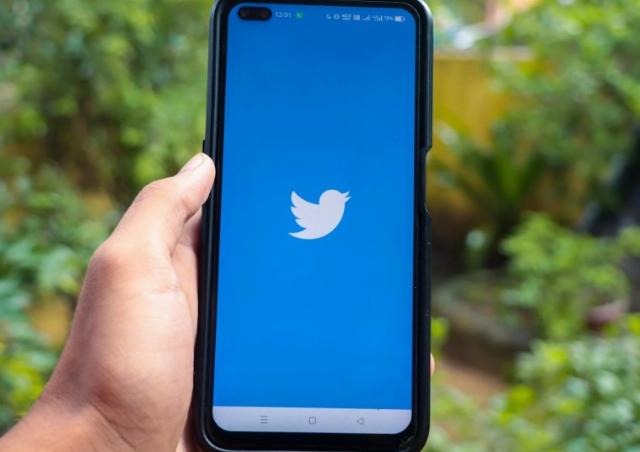At Twitter, a single point of failure for freedom
It’s been generally accepted that Elon Musk is a genuine patriot for purchasing Twitter and trying to set it on a course to be a bastion of free speech. Unfortunately, there are hidden pitfalls in the system that are censoring people on both sides of the political spectrum, to the point that the Trump administration’s Federal Trade Commission has begun an inquiry into the issue.
A Single Point of Failure for Freedom
In engineering any kind of system, you always endeavor to avoid what is colloquially called a Single Point of Failure (SPOF), such as a single critical sensor, a single bolt connecting the wing of an aircraft to the fuselage, or a single pin holding the main rotor to the mast of certain rotorcraft. As the name implies, the failure of this part will lead to catastrophic results.
We’re in historic times, with a disintegrating Un-Democratic Party, propaganda media, and left in general in full retreat, all thanks to the efforts of Elon Musk. However, one of the linchpins undergirding this success of freedom could easily be undermined by a growing threat within X (Twitter). This is a single point of failure for freedom and a hidden danger to X (Twitter).
It wouldn’t be as dire of a situation if the load (in engineering terms) were spread among multiple social media platforms, such that were there a fault in one system, the others would shoulder the load defending freedom. But that isn’t the case. There are other microblogging systems, but these aren’t as pervasive, so a failure in X could be devastating. Hence the reasons we’ve been forced by circumstances into raising the alarm.
Arbitrary shadowbanning.
The term “shadowban” is defined as “to cause (a user or their content) to be hidden from some or all other users usually without the user’s knowledge.”
This is nothing but censorship covered in some Orwellian sparkle. In the case of X, the threat to free speech appears to be arbitrary and random, no matter what you do on the platform. This can be easily verified by a search for the term “temporary label” to find the latest victims of this arbitrary designation. Research into the issue has shown that this has been a threat for quite some time.
It was more than two years ago that Elon Musk @elonmusk announced on X that
Twitter is working on a software update that will show your true account status, so you know clearly if you’ve been shadowbanned, the reason why and how to appeal
2:32 AM · Dec 9, 2022
Despite this, as of last March, the situation had not been resolved. Tech Crunch noted that “X users are still complaining about arbitrary shadowbanning.”
Users of Elon Musk-owned X (formerly Twitter) continue complaining the platform is engaging in shadowbanning — aka restricting the visibility of posts by applying a “temporary” label to accounts that can limit the reach/visibility of content — without providing clarity over why it’s imposed the sanctions.
Running a search on X for the phrase “temporary label” shows multiple instances of users complaining about being told they’ve been flagged by the platform; and, per an automated notification, that the reach of their content “may” be affected. Many users can be seen expressing confusion as to why they’re being penalized — apparently not having been given a meaningful explanation as to why the platform has imposed restrictions on their content.
This continued into last July: “X has long been accused of arbitrary shadowbanning — a particular egregious charge for a platform that claims to champion free speech.”
But now the situation has reached a boiling point. Research shows that people are getting these notices right and left with no recourse in appealing these arbitrary actions — not to mention the fact that account suspensions have tripled on X since Musk took over.
If you start up an account, adhere to the instructions from X in selecting accounts to follow, and by chance do this too quickly or select too many, your account will be locked. If you dare to use a word repeatedly in a post, your account will be locked. Or if you just use the system in a way the algorithms consider “unusual,” such as liking a tweet, your account will be locked.
Even worse, when you succeed in restoring your account, the system will often zero out your following count and then later restore it to what it was, causing it to trigger another lockout. All of these actions can earn you the dreaded Temporary Notice, after which it can shadowban your account at any time. I have witnessed all of these take place on my account and searches on the subject in X.
The Federal Trade Commission, led by President Trump’s newly appointed chairman Andrew Ferguson, will conduct an inquiry into these practices.
Today, the Federal Trade Commission launched a public inquiry to better understand how technology platforms deny or degrade users’ access to services based on the content of their speech or affiliations, and how this conduct may have violated the law.
Censorship by technology platforms is not just un-American, it is potentially illegal. Tech firms can employ confusing or unpredictable internal procedures that cut users off, sometimes with no ability appeal the decision.
News reports and actions from the Trump administration indicate that this is a growing concern. If you’ve been shadowbanned, the FTC will want to hear from you. You have until May 21, 2025 to submit a comment.
D Parker is an engineer, inventor, wordsmith, and student of history, former director of communications for a civil rights organization, and a long-time contributor to conservative websites. Find him on Substack.

Image via Pexels.





